 I’ve loved editing and proofreading ever since my dad hired me to edit his telephone directory when I was thirteen. Okay. That’s a bit of a stretch. I didn’t quite love editing and proofreading then, when I checked people’s names, addresses, and telephone numbers over and over again, but I didn’t hate it. And more important, that’s when I realized that I was a skilled editor and proofreader, and that not everyone had those abilities or enjoyed exercising them. Since then, I’ve built on my public and academic editing skills by adding sports programs, engine manuals, and journal articles, among other genres, to my repertoire. This is what I love about editing and proofreading: that I’m helping others make their writing projects stronger. I’m not going to lie; I also love the thrill I get when I find a typo. Please check out my new editing page. I look forward to working with you!
0 Comments
I make no apologies about loving enemies-to-lovers romances. I love them so much that that’s the theme I chose for my own romance novel, Finally You. There’s something about the sexy banter between characters—that Katharine Hepburn-screwball comedy quality—that really gets to me.
Sally Thorne’s The Hating Game has been on my To Read list for several months now and I finally received the long-awaited news that my library was holding the book for me. This weekend I devoured the book in two sittings, racing through the pages like I was going to win a prize at the end and soaking in each moment like I was going to take an Accelerated Reader quiz afterwards. But the book was just that wonderful. Lucy has wanted to work in a publishing house since she went on a field trip to one as a pre-teen. She’s an assistant at publishing house Bexley and Gamin now and she works in the same office as her greatest nemesis, Josh. Everyone loves Lucy but Josh, and no one cares that much for Josh, including Lucy. You guys, it’s basically a Jim and Dwight (Dwigt, if you remember) situation from The Office, but with hot, heterosexual characters who don’t put staplers in Jello or hype themselves up by playing heavy metal in their Trans Ams. Lucy and Josh’s bosses announce that a new position is opening in their department and both Lucy and Josh want it. They agree that whichever person does not get the position will voluntarily leave the company. Conditions are ripe for a final show-down, but this show-down is complicated when…Lucy and Josh begin kissing each other! Naturally, much, much, much more happens, and it’s all wonderful and exciting and splendid fun. This book is one of the best rom-coms that I've read. Thorne writes with a deft, skilled hand, and I was immeditately drawn into Lucy's first-person account of what it's like to work with someone like Josh. (First-person narration is rarely done in romance novels but it is so, so great here.) I highly recommend this contemporary romantic-comedy if you want to relax a bit and remember that there’s a whole hell of a lot of love in the world. And if this romance gets you in the mood to look at others, check out contemporary romance authors Julie James (you can start with Something About You) and Susan Elizabeth Phillips (First Star I See Tonight was released in 2016), and any Katharine Hepburn comedy (the lady had class and an attitude). 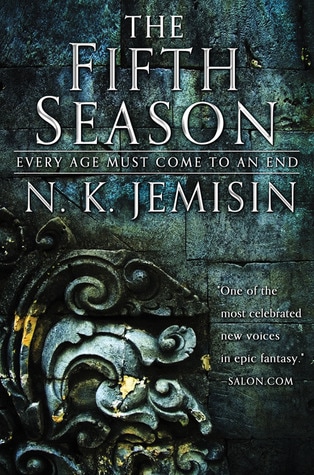 I get really excited when I read a book and think, I have never read anything like this before. I had that thought many times as I read N. K. Jemisin’s The Fifth Season, the first in Jemisin’s The Broken Earth series. I was less invested in the characters themselves than I was in the book’s daring, unpredictable plot and the thoughtful, meticulous descriptions of the world that the characters inhabit. When the book opens, the unnamed narrator tells us, “Let’s start with the end of the world, why don’t we? Get it over with and move on to more interesting things” (1). The narrator’s casual, even flippant tone, captured me from the beginning, as did his/her descriptions of the land that the characters live on: the Stillness. According to the narrator, “It moves a lot this land. Like an old man lying restlessly abed it heaves and sighs, puckers and farts, yawns and swallows” (2). Aren’t those two amazing sentences? It turns out that it’s difficult to summarize the plot of a book like this when different timelines take place in various chapters of the book and the chapters don’t follow a chronological order. There are characters who appear, disappear, and re-appear, terms that characters use which are mostly explained only in the Appendix at the end (i.e. strongbacks, use-caste, Sanzed), and phenomenon that sometimes the characters don’t understand yet, so the reader doesn’t either. But if I wanted to reduce this sprawling, magnificent plot to one thread, I would say that when the book opens, Essun’s husband, Jija, has killed one of their children and kidnapped another, all because of who they are. Essun’s efforts to retrieve her daughter and exact revenge for her murdered son, Uche, are complicated by the fact that something has set off a major earthquake in the North of the Stillness, an earthquake that will destroy the world and everyone in it “For the last time.” Genre-wise, this book is a dystopian; coming of age; science fiction/fantasy; mystery; adventure epic. If you want to be more clued in to what’s happening from the beginning of the book, check out the Appendix, which offers definitions of many of the terms mentioned—and which I didn’t locate until I was several chapters in. I loved how intricate and bold this book is and how diverse its characters are. It seemed to me to be a very inclusive dystopian novel (see other genres listed above), and I really appreciated that. The Fifth Season won the 2016 Hugo Award and received major props from many prestigious publications, and it deserves every one of them. This book seems to me one that will provoke extreme reactions, and I can see some of my friends not enjoying it. But if you enjoy the genres that I detailed above—or just want to read something that takes huge risks—check this one out. I think you will be wowed.  Photo By: Alex Knight. Unsplash. Photo By: Alex Knight. Unsplash. I’ve been trying to write and publish fiction for all of about five months. So of course I feel qualified to give readers some writing tips! I’ve written on my blog before out how much personal satisfaction I get out of writing. Though these words have come to mock me a bit (since I’m having so much trouble with my second book), I stand by my statement. There is something really marvelous about reading what I’ve written and thinking—usually with a start of surprise--I really like that! Besides that, writing has been a tremendous help to me in my struggles with postpartum anxiety and depression (which I’ll discuss more in later posts). As you might know and/or suspect, I am not a medical professional and I’ve had little mental health training. What I can do is speak from my experience. After giving birth I obsessively worried about everything that could possibly happen (and I'm still working on this, so ignore the use of past tense in "worried"), but I found/find it very helpful to distract myself and to busy myself by focusing on other people: my characters. Before I get into the nitty-gritty of my own writing routine and tips, I want to offer the series of disclaimers that I think a lot of moms (and maybe dads, too, but I’ve noticed it more with women) feel compelled to make. What works for me may not work for you. These are some facts of my mommy-life: I’m a stay-at-home/work-at-home mom with one child who sleeps until roughly 8:00 am, naps for about 2-2.5 hours during the day, and goes to bed around 8:00 pm ish. And of course I’m listing his sleep times because, and this is so obvious I probably don’t have to say it, I don’t get writing done while he’s awake. You might have two or more kids. You might have kids who don’t nap (My BFF Mary Catherine Starr revealed recently that she didn’t take naps after 3 months. WTH? God bless Mary Catherine’s parents and any other parents dealing with that!). You might not have kids but you have demanding personal or professional obligations. You might have a nice mixture of several of these. Whatevs. I’ll also post the disclaimer that most of what I write is just reiterating what other more established, popular, and talented writers have to say. (I'm not trying to put myself down because I'm actually really proud of my book. I'm just being honest, here!). And finally, I’ll repeat how I started this post: I’ve only trying to write fiction seriously for 5-6 months so this post is pretty presumptuous. After all, there are actual graduate programs for writers and aspiring writers. But I’ve spoken with some of my friends who are interested in writing and so I want to share practical tips for how I’m finding time to do it. And now I’ll share my tips, without any additional apologies. Force Yourself to Write. I’ve read articles with writing advice, and the most common piece of advice that I saw was to sit down and write (authors like Nora Roberts really emphasize this). Words do not magically appear on the page unless you’re living in the world of Harry Potter, in which case I am super, super jealous of you for multiple reasons. There were so many times when I was discouraged by what I was writing* or felt that my story was going nowhere, but that feeling passed. It really did. You’ll eventually get out of the weeds if you persevere, and then you’ll be feeling stronger than Beyoncé, Brienne of Tarth, and Hermoine put together.** *Like right now. Right now I am fairly discouraged but I am persevering, even if I only write a little each day. **That's a lie. No one is stronger than Beyoncé. Establish a routine. My typical routine is, as I’ve stated, to write when my son is asleep. But this routine varies, depending on when my son actually sleeps. And of course some nights he doesn’t sleep well, which means that my next day is thrown off. Like everything else in my life, writing revolves around my son (and it’s the most wonderful thing to have ever happened to me or to my husband). So if you’re dealing with other demands, like work or personal obligations, shoot for the routine and hopefully you’ll get there most days. Fun fonts. This is pretty self-explanatory. Maybe it’s because I just left an academic environment where everything was Times New Roman, size 12, but I am living wild and free these days with Garamond. (Yes, I know that’s not that wild.) Put goals in your planner. I have majorly not met my goals for the second book, but this advice really kept me on-track for the first one. I put word count goals on each day, and I tried to keep it pretty realistic. For example, I might write 20,000 words on my planner for January 25th, which indicates that my word count will be at 20,000 on that day. On January 26th, I might put 23,000, which means that my word count will be at 23,000 on that day (and I will have written 3,000 words on one day). This was a really encouraging way for me to stay focused while writing my first book. Be prepared to start over. Keep a doc with the extras. Yes. Though I’ve only been trying to write fiction seriously for the past five or so months, I have written so many words. My first romance novel ended up being around 85,000 words, but I scrapped probably 40,000 words along the drafting phase and moved them to an extra doc so that I can use them later if I want to. Similarly, I wrote 60,000 words for my second novel and then decided that I disliked most of them and took the draft down to around 10,000 words and started from there. But since I’ve kept a second doc with my scrapped words, I haven’t lost any of them and I can occasionally find good passages that I cut and paste into my working draft document. Occasionally re-read what you’ve written as you’re drafting. Some people say that you should just spit out everything for your first draft and not try to edit as you go. But what I find to be incredibly valuable is to start nearly every writing day by re-reading the last few pages that I wrote for the particular scene. Not only does it help re-orient me to what I was writing and my characters, but I hopefully like what I’ve written and it gives me an encouraging boost to keep it going. Read your work aloud. This is so important. Reading your work aloud—not necessarily the whole thing, but chunks of it—will help you find the awkward parts, the boring parts, etc. It will also help you see the good parts of your writing—the pacing, the authenticity of your characters’ dialogue, etc. Just try it! Hire an editor if you can afford one. You should edit and proofread your own work lots and lots. But after that, think about having a professional come in and clean up what you couldn’t find. I have quite a lot of experience in editing, but I still hired an editor and she found quite a number of things that I needed to change. She also made great suggestions about how to fine-tune my plot and characterization. Let me keep it real: her write-up was constructive, but the first couple of times I read it, I thought: ouch. Of course I wanted her to read my book and say: this was amazing! Five stars! A+++++++. And she didn’t say that. But once I let her words percolate—and had a couple of emergency talk sessions with my best friends, who had read my book—I realized that she wasn’t saying that this was the worst book she had ever read, and that I had asked her for her honest assessment (duh!). And in the end, her assessment was extremely valuable (for example, she noticed that I had my female character’s undergarments being removed twice. Ha! That kind of writing mistake would likely only happen in a romance novel.) Note: editing can get pretty expensive. I paid $2.50 per typed double-space page, which ended up being cheaper than other rates that I found. Most other editors that I looked at charged by the word. If you go the self-publishing route, you can probably turn your book into an eBook and paperback on your own. My disclaimers are: you have to have at least some facility with computers and it helps if you have access to Photoshop or have an amazing friend (holla, MC Starr) who can make your eBook cover for you. (With that being said, I think that you can design your own covers using a program that Amazon provides. I think it’s called Cover Creator, but don’t hold me to that!). Now, MC designed my eBook cover, which was a HUGE help. On my own, I figured out how to convert my Microsoft Word doc to a Kindle eBook (using instructions provided on Amazon), and then how to convert my Microsoft Word doc to a paperback (using a template and instructions provided on Amazon). My husband, Daniel, helped me figure out how to turn the eBook cover that MC sent into a paperback cover—because you have to add things like the spine and back cover (and we had to change the dimensions of the front cover that MC sent for the paperback). My major point is: I saved a crap-ton of money doing most of this on my own. There were times that I didn’t think that I’d be able to figure it out—the paperback conversion gave me a little trouble until I found the right set of instructions—but I did. You can definitely pay people to do this for you, but it can get really expensive. If you haven't checked out my book, Finally You, yet, you can find it on Amazon. Don't forget that you can get a free eBook sample if you're just not sure whether you want to buy it! What writing tips do you have? Have you thought about writing fiction? Do you write fiction? Share!
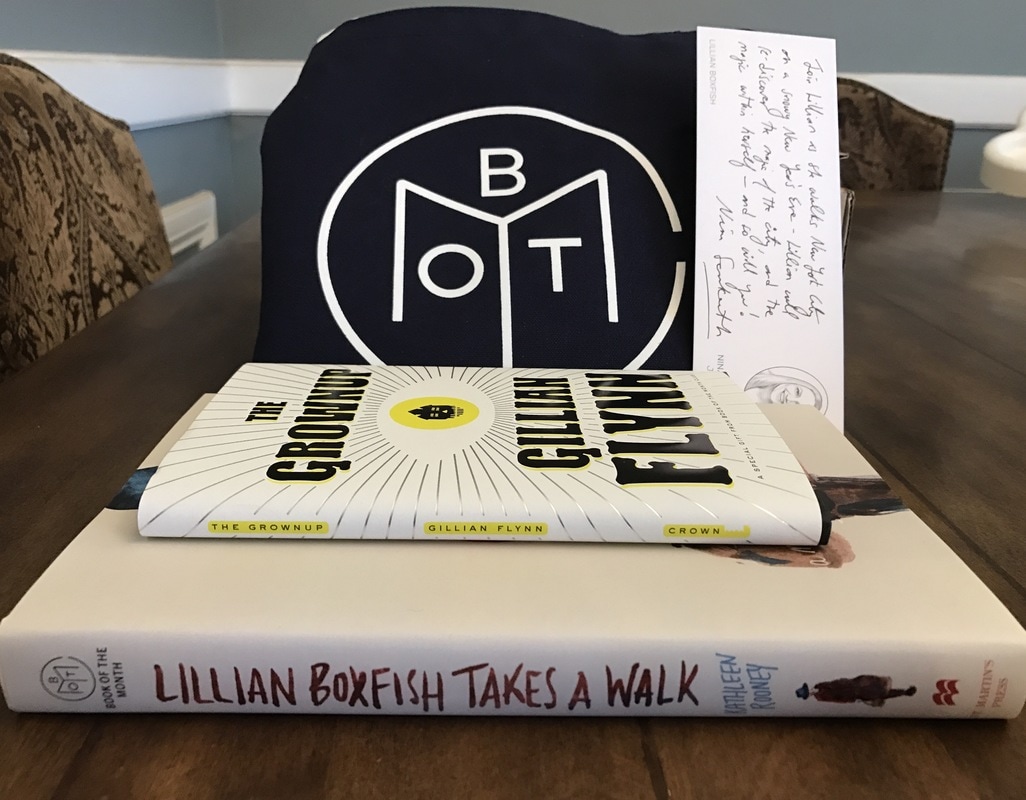 At this point of my life, it feels extra special to buy a new, hardback book. I typically buy used books or check out books out from my library. But I’ve been crushing on Book of the Month (BOTM) for several months now, and at Christmas I decided to buy myself a 3-month subscription and say that it was from my husband. (Daniel, this will be a test to see if you actually read my blog. I will wait anxiously to see if you ask me about this supposed gift later today ;) ) You can check out how Book of the Month works here. I (cough: Daniel) opted for the 3-month plan, which theoretically meant that I would receive a total of 3 books. But, BOTM was offering a magical offer when I subscribed, so I was actually guaranteed a minimum of four hardback books to add to my library. Happiness. But wait, it gets even better. For the month of January, I selected Lillian Boxfish Takes a Walk by Kathleen Rooney. All BOTM subscribers also received a free copy of Gillian Flynn’s The Grownup, as a just-because extra gift!!!!! Finally, I got a BOTM tote because it was offered when I signed up. While you’re not supposed to make absolute statements, I have to say: everyone loves a good tote. So let me tell you, I was very excited to open my box of goodies on Wednesday morning. I was so excited that that day I took several pictures of my books and complimentary paper bookmark, and tore through the roughly fifty pages of Gillian Flynn’s The Grownup, which I thoroughly enjoyed. The Grownup is marketed as an “homage to the classic ghost story.” Yes, please. Although I can make myself scared over almost anything, I love a good ghost story, and Flynn’s The Grownup is unlike anything I’ve ever read before. It’s one of those slight but dense stories that I would love to discuss in a book club or a class because so much happens in 50-odd pages and the ending is one that’s open to interpretation. But let’s go back to the basics. The unnamed female narrator—who has had a series of very interesting jobs—is currently serving as a clairvoyant. She is very skilled at reading people, but the clairvoyant claim is a scam. Still, when a desperate woman named Susan asks her to cleanse her home, the unnamed narrator accepts because of the extra cash and the relatively easy job—she might have time to read from the woman’s library while she’s “cleansing” the home. Once she arrives at Susan’s house, the story gets more complicated. The unnamed narrator discovers that she is also affected by how the house looks and feels. Add a creepy step-son and you’ve got a rich, weighty ghost story to get scared by and lost in. Why don’t you read it so we can discuss the ending? I’m not sure if Daniel will buy me a longer subscription to BOTM once this one ends, but I am loving BOTM so far. If you would like to sign up for BOTM, and you use this link, I’ll get a free book! Now I’m going to try to enjoy today, and tomorrow, my BFF Laura and I, along with other friends, will be participating in the Lexington, KY Women’s March. Let's remember to stand up for what we believe in and what we know to be right. In the words of Patton Oswalt: "So if we're really going to fight back, and resist, the first thing we have to do -- and it's only a little thing, really, but it's gotta be everyday -- is an ongoing, gentle blowing on the tiny spark of sanity that's still left, to keep it glowing." *This is not a sponsored post. I just love BOTM so far and wanted to share my experience with you. 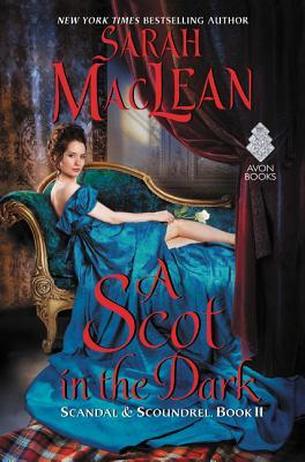 I have had a special place in my heart for Scottish men ever since I started reading Julie Garwood’s historical novels. In my reading experience, male Scottish protagonists are smart, powerful, and brawny as hell, and simultaneously brought low and made stronger by the love of an amazing woman. So I had high expectations for Sarah MacLean’s A Scot in the Dark, and they were exceeded. If you haven’t tried the romance genre before, Sarah MacLean is a wonderful place to start. Her characters are aware of the strict cultural conventions and expectations which govern British society, but that doesn’t mean that they fall in line with them. In fact, one of the things that I love most about her books is that many of her characters tend to be unconventional, different from other historical romance characters even if what they want isn’t so different. Take Lillian Hargrove, protagonist of A Scot in the Dark, as a prime example. Lillian is the most beautiful woman in London. She is also currently one of the most scandalous. Her lover, Derek, an artist, broadcasts the fact that he has submitted a nude painting of her into the Royal Academy Exhibition (without Lillian’s permission), and it will be revealed within a two-week period. Derek summarily becomes Lillian’s ex-lover. When the solicitor informs the Duke of Warnick, of Scotland, that his ward, Lillian, has become embroiled in scandal, the Duke first says—I have a ward? (paraphrase)—and then, I have to help her! (paraphrase). But Lillian is distrustful of this man she has never met before, particularly since she has lived most of her life feeling alone. And the Duke isn’t as straightforward as he seems at the onset, either. He has his own secrets, including one that I did not suspect in a million years. The chemistry between these characters is hot, and their relationship is satisfying and yet suspenseful. I love the strength of MacLean’s female characters and the ways in which they surprise readers’ expectations. A Scot in the Dark is highly recommended for all romance readers (and anyone who suspects that they might be one, but haven’t tried it out yet). And if you haven't tried Julie Garwood's historicals, try those too. Scottish men can help get us through the winter. Check out my romance novel, Finally You, on Amazon. Today, and for the next few days, the eBook version is $.99! 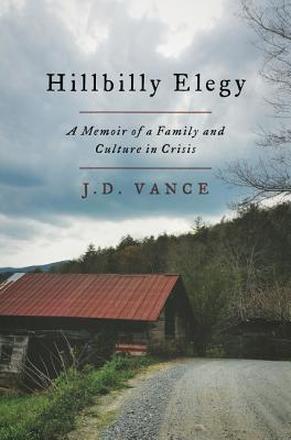 This weekend I settled in to read J. D. Vance’s Hillbilly Elegy, a buzzed-about book which has been touted as a particularly necessary read during these post-Trump election times. Hillbilly Elegy is immensely readable and immensely worthwhile. The book was revelatory to me on its own merits (i.e. as a memoir), but also because it gave me more insight into my own extended family and the general patterns of thinking and behavior amongst some white Americans which are difficult for me to understand. Vance grew up in Middletown, Ohio but also spent a great deal of time with his extended family in Jackson, Kentucky. His descriptions of where he started and how he got to where he is--a Yale Law graduate and writer with a successful marriage and career--form the meat of this memoir. Vance’s childhood and adolescence were tumultuous, to say the least. His mother is an addict who sometimes behaved erratically, and who repeatedly relocated her family as she started and ended relationships with her romantic partners. His biological father, who observes a strict adherence to his religious faith, gave up his parental rights to Vance but established a relationship with him later in his youth. In short, Vance (and his sister, Lindsay) had their share of problems to confront. Yet Vance left Middletown, Ohio for the Marines, and then went on to Ohio State University where he graduated early, and then attended Yale Law School. Vance credits his Mamaw and Papaw (his grandparents, for those of you unfamiliar with those titles) for providing him with stability, as well as his sister Lindsay, his Aunt Wee, and other role models, but he doesn’t discount the importance of personal agency, either. What Vance says is that where we grow up (the families and communities we grow up in) has a tremendous influence on our attitudes and our expectations. He cites studies which indicate that “There is no group of Americans more pessimistic than working-class whites,” a group which he counts his family (and some degree, himself) among. This information is particularly compelling when we, like Vance, consider it alongside how this same group of people has largely been so dismissive of President Obama and eager to embrace fake news (by the way: I'm not saying that these attitudes are only confined to working-class whites). Vance details his own troubled childhood and the lives of those around him to show how critical “the home” is for “hillbillies” like Vance and his family. Vance is quick to state that he is unaware of “what the answer is, precisely, but I know it starts when we stop blaming Obama or Bush or faceless companies and ask ourselves what we can do to make things better.” I mentioned earlier that this book gave me many potential insights into some of my own extended family's dynamics. My father’s family has been one that has struggled with addiction for I don’t know how many years. For the last hundred+ years, they seem to have lived in Kentucky, largely in rural Shelby and Henry counties. I didn't hear the word "hillbilly" a lot growing up, but I did hear "redneck" quite a lot, and I made a deliberate decision to try to speak without an accent when I was a pre-teen. Though my own childhood was relatively drama-free, I witnessed a couple of upsetting episodes amongst my extended family, and I heard about even more through the usual channels of family gossip. When I attempted to research that family history a couple of years ago, I discovered that not only had my grandpa struggled with addiction, but his parents had lost several children due to drowning and drinking bad milk, amongst other reasons, and his dad left the family; my grandpa’s grandpa committed suicide, leaving behind a wife and children; and my grandpa’s great-grandpa was hanged for killing his father-in-law. In other words, it seems like a long line of deep-seated issues—generations of disturbed men, and I don’t say that flippantly—many issues which I can guess at but don’t feel comfortable speculating. I would argue that my dad broke the cycle. He had flaws—like every other person in the world—but he was an excellent father and an excellent role model. Anyone who knew about the family that he grew up in wondered how he managed to make it out and thrive like he did. I’ve long wondered about the role that “the home”—one’s environment, and also, one’s genetics—play in family development, particularly in isolated rural communities, and how we reconcile that with we can do and choose to do by making our own decisions. I loved this book because Vance’s life was interesting and even inspirational, and I enjoyed reading about someone else who calls their grandparents Mamaw and Papaw like I do, and who loves his family even while suffering under the demands placed upon him by some of those family members. But what I loved most is how Vance writes about the role that our past plays on us in rural communities like where I grew up—how it shapes our actions and who we are and who we become—but how he also emphasizes our own agency in the process. I’ll take Vance’s thoughts with me as I continue to consider how my family ended up the way that it did—with my dad blazing his own path—and when I think about my hopes for son’s future. And finally, when I think about where things stand in our country politically. I don't think that "hillbilly" problems will be solved quickly, but it seems like Vance's book provides more illumination and allows us to see them better. 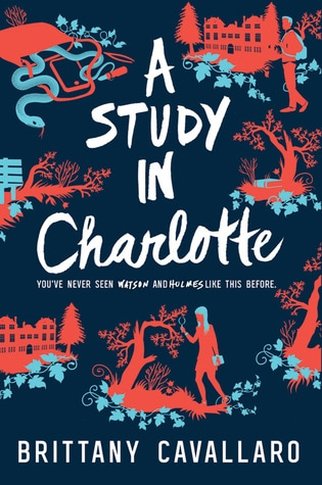 Brittany Cavallaro’s A Study in Charlotte is an adventurous, suspenseful YA re-telling of Sherlock Holmes that is also frequently insightful and heart-warming. In this re-telling, the protagonists are two teens who are the descendants of Holmes and Watson. Charlotte Holmes is a well-known detective whose parents send her to a boarding school in the United States as a punishment. She’s also addicted to oxy. Jamie Watson attends the same boarding school for different reasons: presumably a rugby scholarship. He has problems with anger management and romanticizing Holmes and their potential relationship. These two come together when one and/or both are suspected of murdering their common enemy, an awful student named Lee Dobson. They race to solve the mystery so that their names will be cleared, and so that more students won’t be harmed or killed by the assailant. The evolution of the relationship between Watson and Holmes is sweet and lovely. As I made clear earlier, both protagonists have issues which threaten the development of their relationship, not to mention the fact that they are teenagers (brilliant teenagers, but still) who are isolated at a boarding school. But I enjoyed reading about how they forged and strengthened their relationship throughout the book; their efforts to trust each other are particularly moving given that at various times they have so few people they can trust. I didn't grow up as a super-fan of Sherlock Holmes, so perhaps I'm more open to re-tellings than a super-fan would be. I often think about trying to find more YA fiction, and I just stumbled across this one in my Amazon recommendations. A Study in Charlotte is highly recommended for anyone who wants to read a YA, mystery-thriller, with a will-they-or-won’t-they element. And the Holmes/Watson references are just fun--I would think whether you are a devotee of the original, or not. 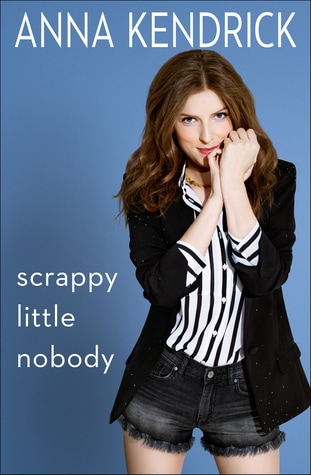 A series of essays written about her life and observations, Anna Kendrick’s Scrappy Little Nobody is hilarious, smart, and hilarious. (I have to mention that twice because it’s so funny). Kendrick discusses her dedication as a child actor (she travelled from Maine to NYC by bus with her teenage brother so that she could audition); her experiences on Twilight and Up in the Air; what it’s like being broke and what it’s like being not-broke; and above all, what it’s like to be a short woman who appears younger than she is and who does not quite fit in. This book is really, really great. Like I noted in my blog post about Amy Schumer’s The Girl with the Lower Back Tattoo, I appreciate it so much when female writers return to the embarrassing/funny/sad/exciting moments of their lives and mine them for humor. Which woman (and man?) among us doesn’t remember what a minefield our teen years and early twenties were? (Or was this just me?) But I love that Kendrick finds the humor in those moments and that she’s gentle with that past version of herself without excusing any behavior that she sees as less desirable. The fact is: there is so much humor to be found in what we do, and even in how seriously we take some of it, sometimes. Despite how funny the book is, the title seems to come from a more serious place: a text to her brother in which she says “I miss being a scrappy little nobody. I was much more capable.” This book is her present-day challenge; a way to “test to see if I still had some nerve.” I loved Kendrick’s quips, her trenchant observations, and the theme of unconventionality running throughout. Anna Kendrick’s Scrappy Little Nobody is a recommended read for January (or any other time of year), for the “scrappy little nobody” in all of us. |
About me.Give me that HEA, please.
Join my mailing list.Want to receive a weekly email with links to my latest blog posts? Sign up below!
Archives
April 2024
Categories
All
|
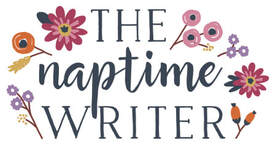

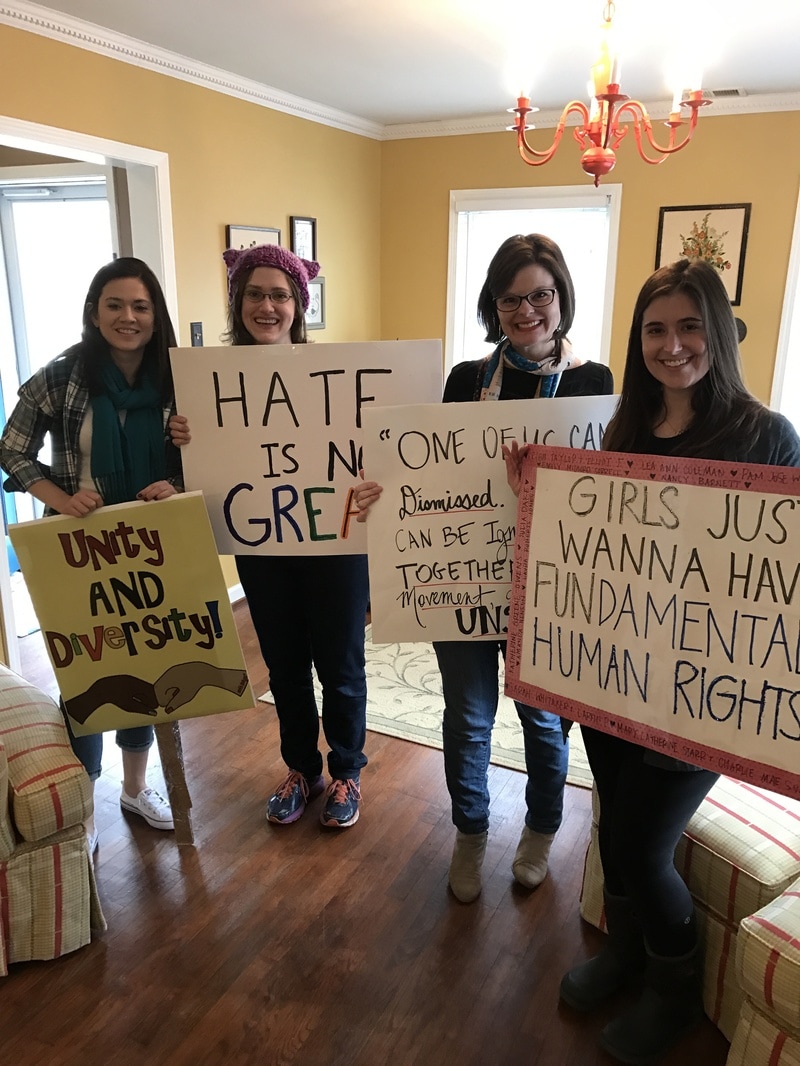
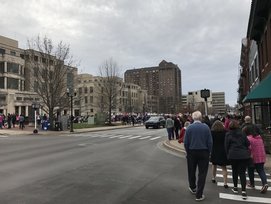


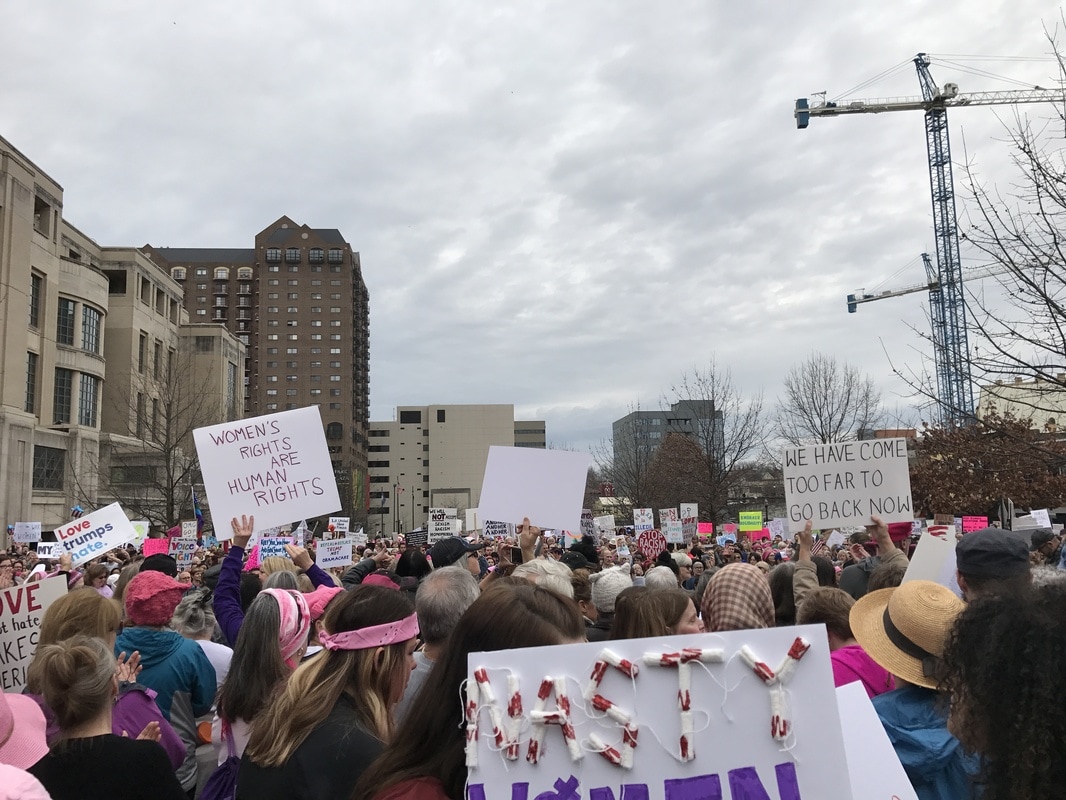
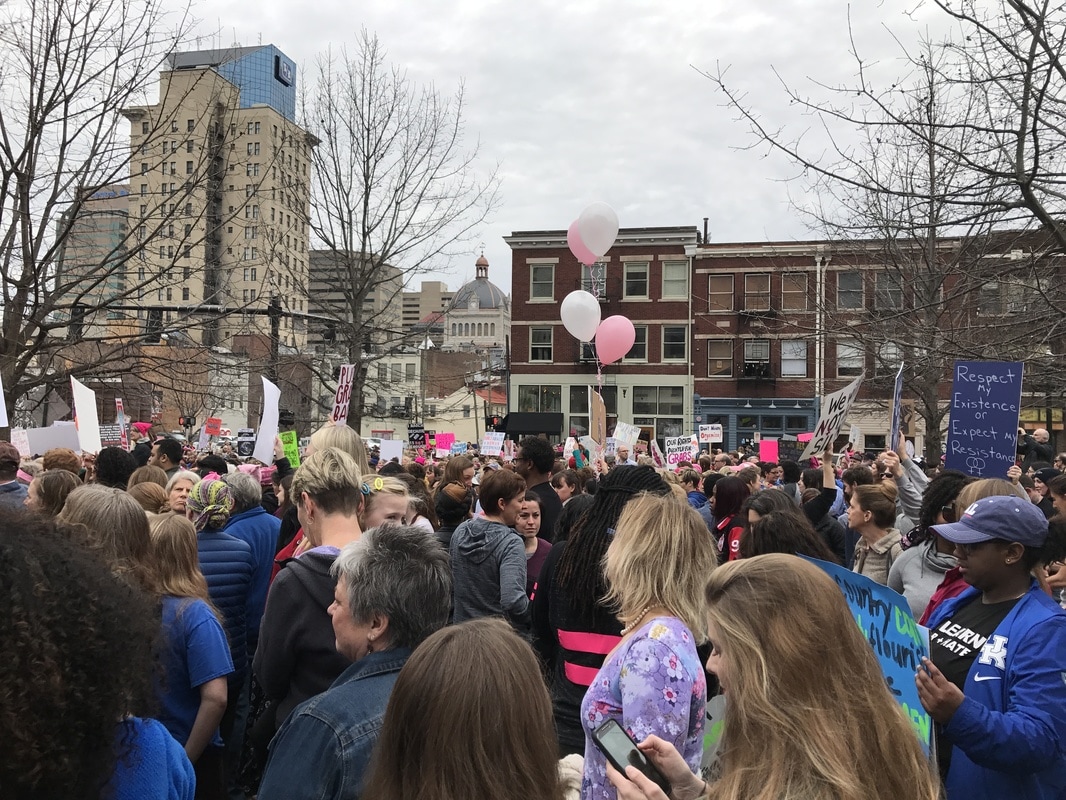
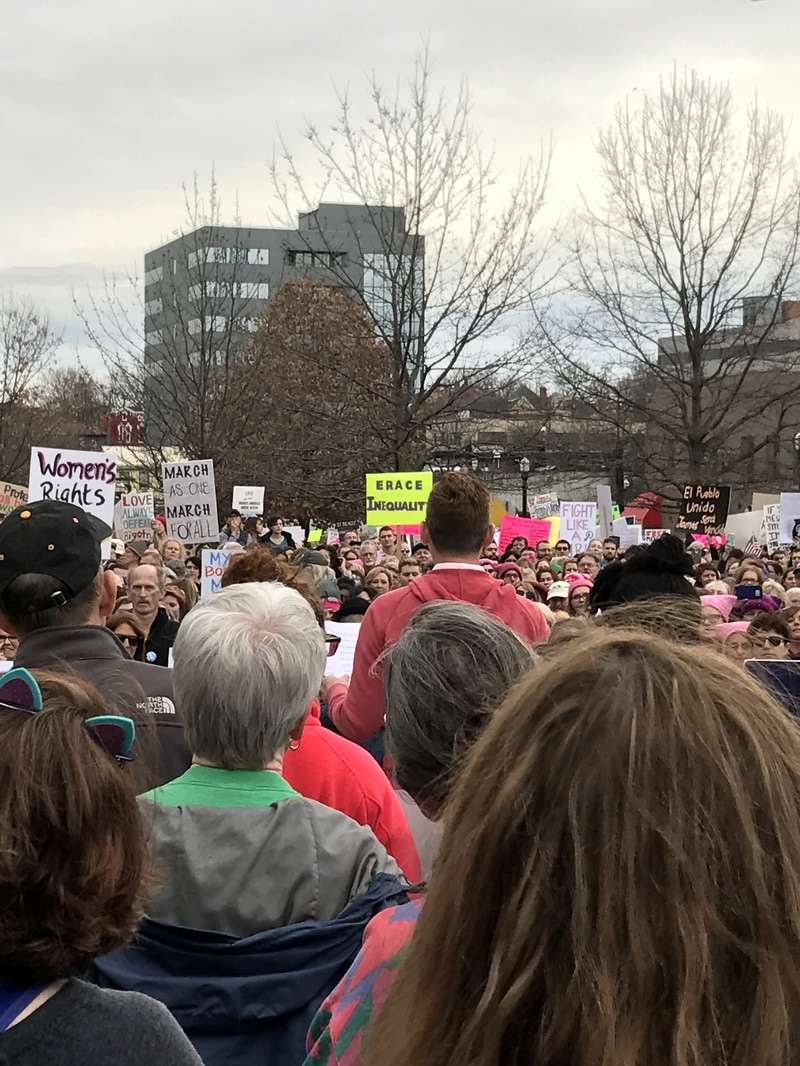
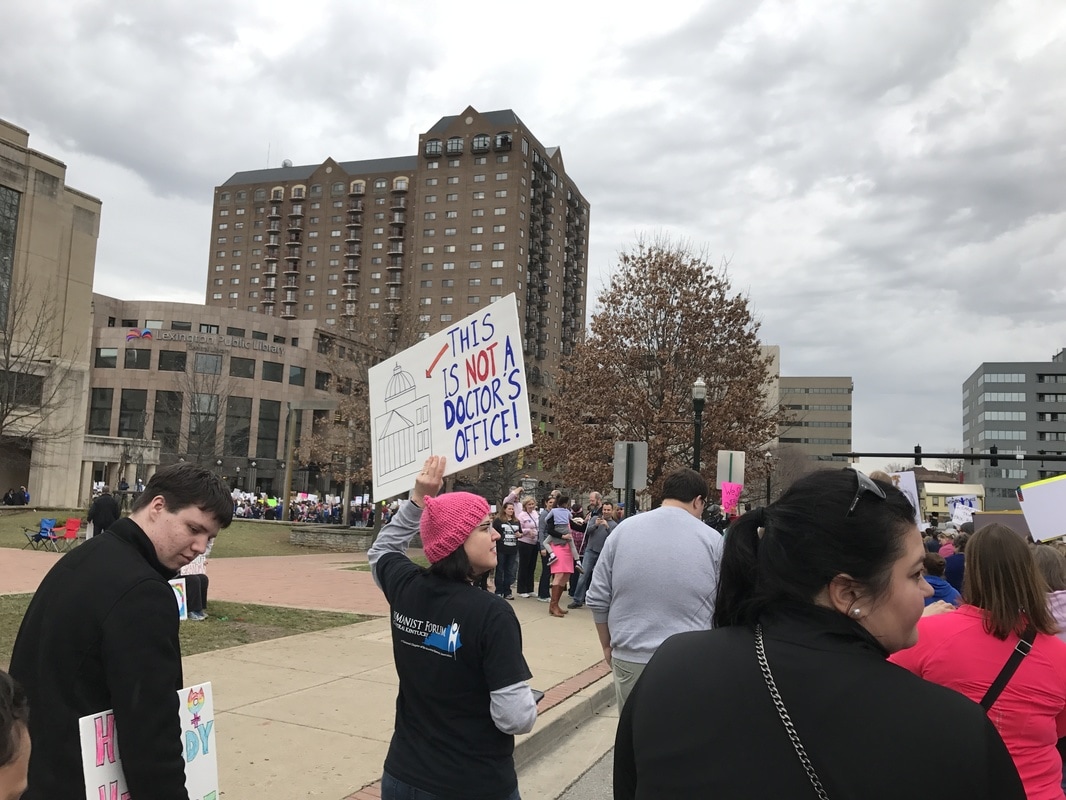
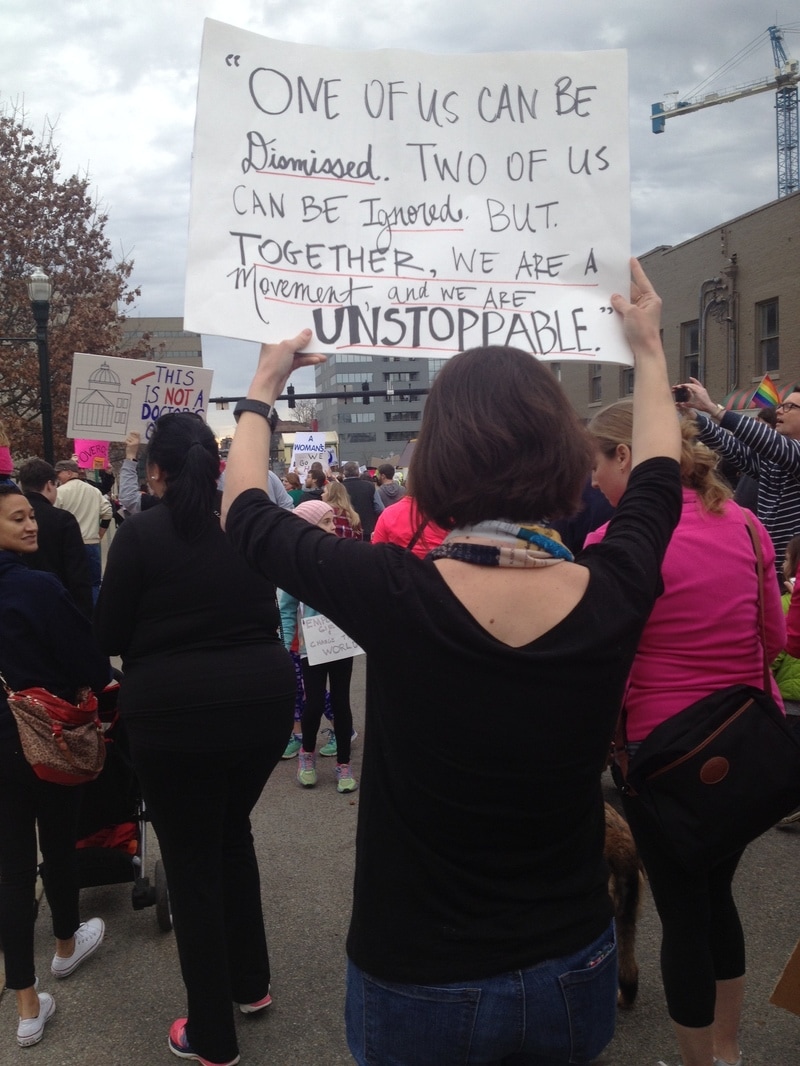
 RSS Feed
RSS Feed
